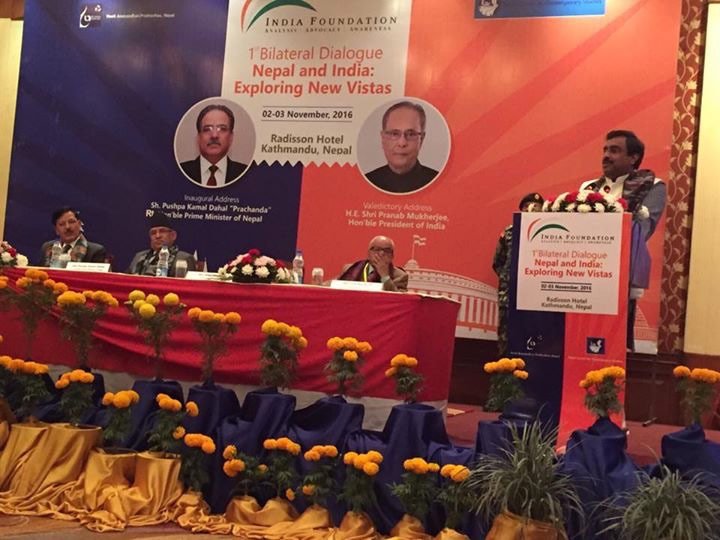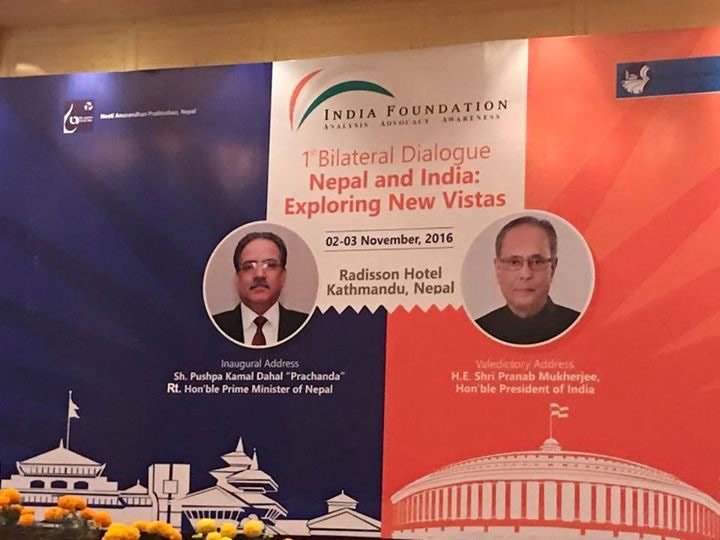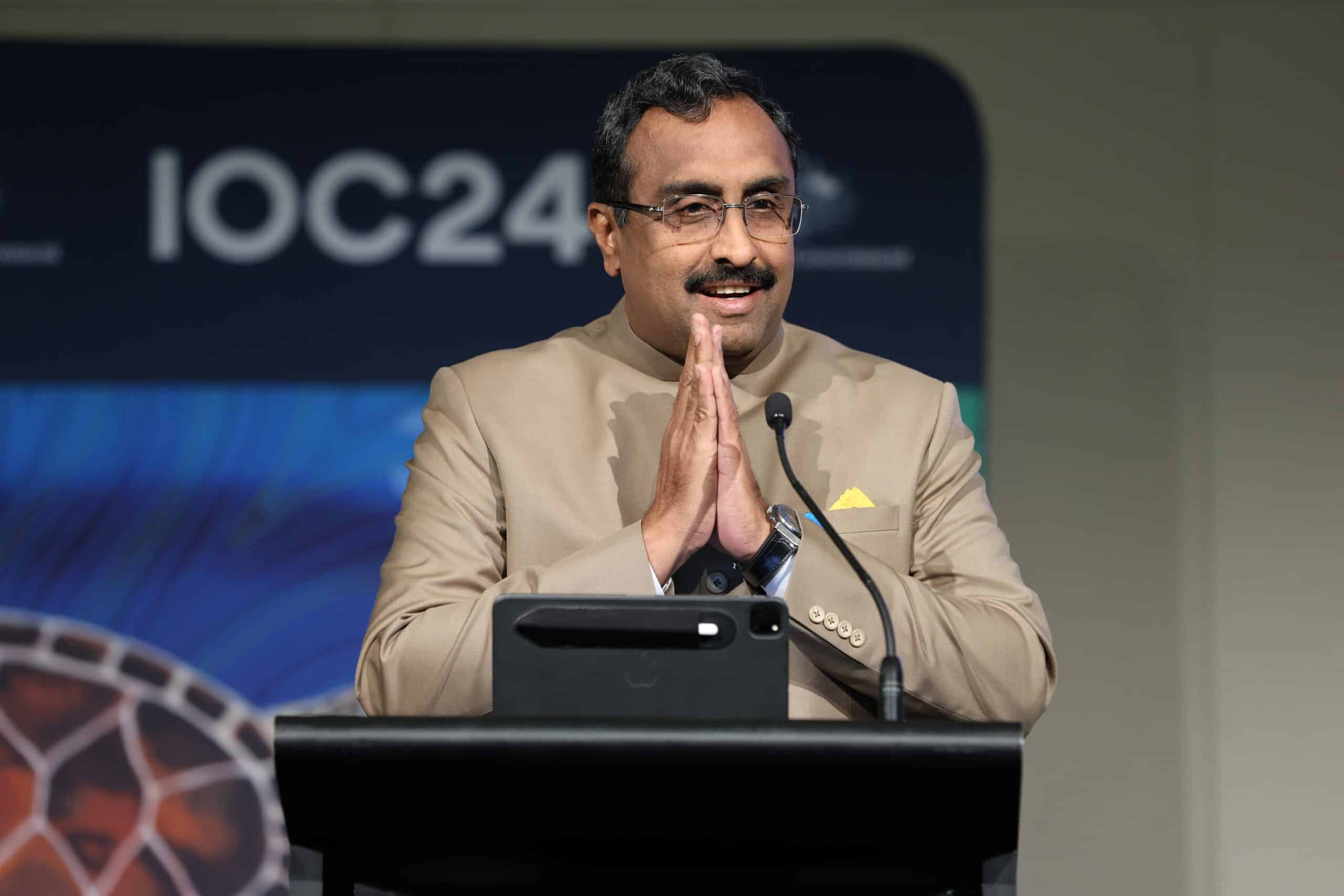
|
Getting your Trinity Audio player ready...
|
Excellency Prime Minister of Nepal Shri Pushpa Kamal Dahal, distinguished and eminent scholars on both sides of the dais and dear friends!
It gives me immense pleasure to extend a warm welcome to His Excellency the Prime Minister of Nepal to this very important Bilateral Dialogue. The India Foundation, Delhi is hosting this Dialogue in collaboration with two important think tanks in Kathmandu. Although described as a Think Tank, India Foundation is essentially a Do Tank. Enough thinking has happened and it is time we translated that thinking into policy. India Foundation tries to encourage governments to do the same.
We called this a a Bilateral Dialogue. Dialogue happens between equals. India and Nepal are sovereign equals. We are a big country; but not a big brother. You can treat us as an elder brother.
India and Nepal have been together for ages. Our relationship is not guided by politics or diplomacy; it is essentially civilisational. A strong millennia-old civilisational bond binds us together. You can change your prime ministers, your governments and your diplomats; but you cannot change your ancestors. You may have many neighbours. But India and Nepal are civilisational cousins and that remains our strongest and unique bond.
Former Indian Prime Minister Shri Atal Behari Vajpayee beautifully described this relationship in his own inimitable poetic way long ago. He called India Nepal relations to be ‘higher than the Himalayas and deeper than the Indian Ocean’. It is a very apt and profound description of our relationship. Of course mighty Himalayas encounter snow storms occasionally, and cyclones hit the vast India Ocean. But those difficulties are transient. The core of the relationship remains intact.
India has entered 70th year of its Independence. When India was becoming independent the leadership had decided to opt for democracy as the future form of government for the country. Someone asked a senior leader the reason for that decision. The reply he got was that ‘because democracy is the second best form of government’. The first and the best? ‘Yet to be invented’. Democracy has many flaws, but it is the best available form of government.
 India’s tryst with democracy is more than 80 years old. In 1935 the British had introduced democratic system through Government of India Act of 1935. Since 1950 we have had our own system of democracy. I can proudly state that after 65 years India today stands as not only the world’s largest democracy, but also a most successful one. The Indian voter has demonstrated his resilience and maturity a number of times in the last seven decades. Democracy’s success lies in the success of people’s power.
India’s tryst with democracy is more than 80 years old. In 1935 the British had introduced democratic system through Government of India Act of 1935. Since 1950 we have had our own system of democracy. I can proudly state that after 65 years India today stands as not only the world’s largest democracy, but also a most successful one. The Indian voter has demonstrated his resilience and maturity a number of times in the last seven decades. Democracy’s success lies in the success of people’s power.
As a nation wedded to democracy we wish to see democracy flourish all around. We are happy that Nepal also has embarked on the path of democracy. For a country with diversity like India, democracy should be the way forward for Nepal also.
In India it took us three years to draft a Constitution for the country. We had lots of debates and discussions. The Constituent Assembly Debates are a great literature to read and understand how the Indian Constitution was made. But when it was promulgated in 1950 the whole country stood in support of it.
We are happy to note that Nepal is also embarking on the Constitution-making exercise. It is a tough challenge. The effort should be to take everyone on board. At the end every section of the people should feel satisfied with what you have drafted. Prime Minister Modi, in his address to the Nepal Parliament in 2014, had suggested that consensus should be the way. Our best wishes to you, Excellency, for a Constitution that is commended by all sections of the Nepalese society.
There are many areas in which India and Nepal can work together to the benefit of both the countries. The India Foundation will do its best to further strengthen our bilateral relations. Prime Minister Modi is leading India on a new path of development, the fruits of which will benefit neighbouring countries. Our PM believes in the dictum – Pass Pass, Saath Saath – meaning ‘as neighbours, together we grow’.
Today we enjoy good mutual understanding, respect and goodwill for each other. Excellency! Your visit to Delhi in September was a major turning point in our bilateral ties. It has put the relations back on the rails. The bonhomie and affection between our two countries is very conspicuous everywhere today. We are very happy to note that when Excellency President of India Shri Pranab Mukharjee arrived in Kathmandu this afternoon he received a rousing welcome with both Excellency President Smt. Vidya Bhandari and Excellency Prime Minister yourself, along with many other dignitaries, present at the airport to receive him. It shows our intimacy and mutual goodwill.
I am sure that this Bilateral Dialogue will be a major stepping stone in further cementing our relations. I once again convey my heartfelt gratitudes to you Excellency, for gracing the occasion and extending your support to our endeavour by agreeing to deliver the Inaugural Address of the Dialogue. As you know many eminent speakers from both the countries will address this Bilateral Dialogue and the culmination of it will be the Valedictory Address to be delivered by His Excellency President of India Shri Pranab Mukharjee.
Thank you and Namaskar.



